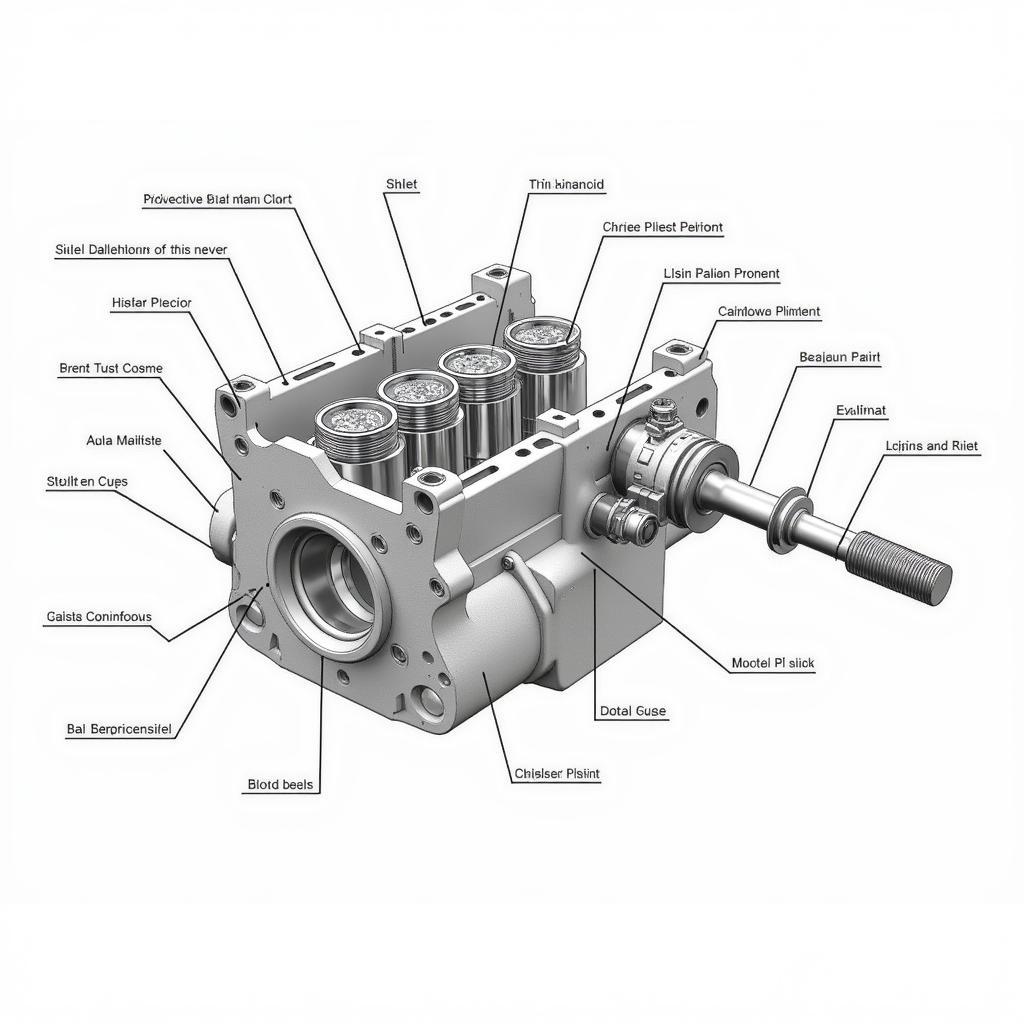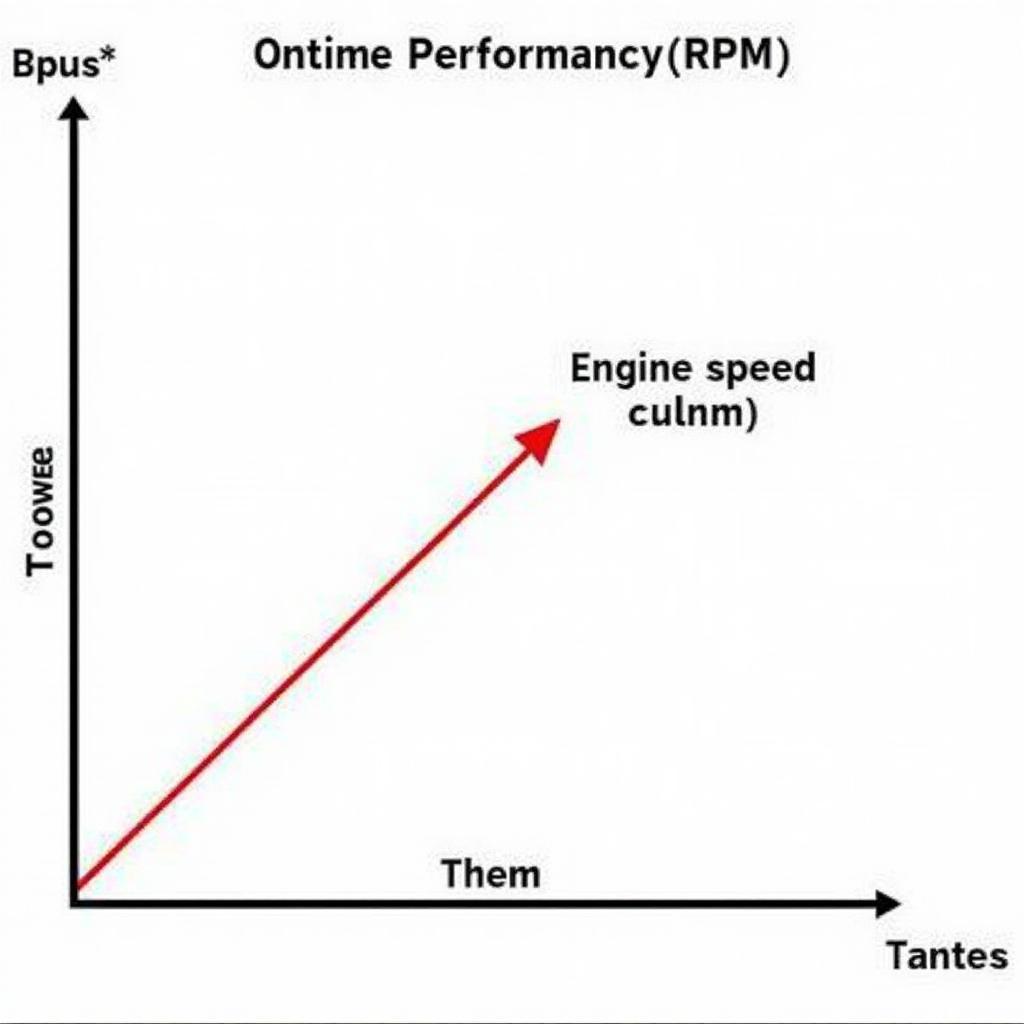Car Engine Details are crucial for understanding your vehicle’s performance, maintenance needs, and overall health. From the spark plugs to the crankshaft, every component plays a vital role. This guide will delve into the intricacies of car engines, providing valuable insights for car enthusiasts, DIY mechanics, and anyone seeking a deeper understanding of what lies beneath the hood.
Decoding the Heart of Your Car: Key Engine Components
The internal combustion engine, the heart of most vehicles, operates on a series of controlled explosions that convert fuel into motion. Let’s explore the key components responsible for this fascinating process. The engine block, the foundation of the engine, houses the cylinders and other crucial components. Inside the cylinders, pistons move up and down, driven by the combustion process. The crankshaft then converts this linear motion into rotational force, which ultimately powers the wheels. Valves control the flow of air and fuel into the cylinders, while the camshaft synchronizes their movement with the pistons. The spark plugs ignite the air-fuel mixture, initiating the combustion cycle.
 Car Engine Block Diagram
Car Engine Block Diagram
Understanding Engine Specifications: Power, Torque, and Displacement
Beyond the physical components, understanding engine specifications is key to evaluating performance. Engine displacement, often measured in liters or cubic inches, indicates the total volume of the cylinders. A larger displacement generally translates to more power. Horsepower measures the engine’s ability to produce work, while torque represents its rotational force. These figures often determine a vehicle’s acceleration and towing capacity. Modern engines often feature technologies like turbocharging and variable valve timing to enhance performance and efficiency.
 Engine Performance Graph: Horsepower vs. Torque
Engine Performance Graph: Horsepower vs. Torque
Car Engine Details and Maintenance: Keeping Your Engine Running Smoothly
Regular maintenance is crucial for prolonging your engine’s life and ensuring optimal performance. Oil changes, air filter replacements, and spark plug checks are essential tasks that prevent wear and tear. Understanding your car’s specific maintenance schedule, as detailed in the owner’s manual, is paramount. Neglecting these tasks can lead to costly repairs down the road. For information about finding a detailed car wash near you, check out our guide on full service car wash detailing near me.
How to Find Specific Car Engine Details: Resources and Tools
Locating specific car engine details can sometimes be challenging. Your vehicle’s VIN (Vehicle Identification Number) holds valuable information about the engine type and specifications. Online databases and resources, such as car engine details from registration, can provide detailed information based on the VIN. You can also find diagrams and technical drawings, like car engine details drawing, that provide a visual representation of your engine’s components. For downloadable resources, check out our car engine details pdf.
The Future of Car Engines: Innovations and Trends
The automotive industry is constantly evolving, and engine technology is no exception. Hybrid and electric vehicles are gaining popularity, offering increased fuel efficiency and reduced emissions. Developments in engine materials and design are continuously pushing the boundaries of performance and efficiency. Even high-performance engines, like those in the 2019 f1 car details, are incorporating innovative technologies to maximize power output.
Conclusion
Understanding car engine details is essential for every car owner. From basic maintenance to performance upgrades, this knowledge empowers you to make informed decisions about your vehicle. By familiarizing yourself with the components, specifications, and maintenance requirements, you can ensure a long and healthy life for your engine.
FAQ
- What is the most important part of a car engine? The engine block is the foundation, housing crucial components.
- How do I find my car’s engine specifications? Your car’s VIN and owner’s manual contain this information.
- What is the difference between horsepower and torque? Horsepower measures work output, while torque represents rotational force.
- How often should I change my engine oil? Consult your owner’s manual for the recommended interval.
- What are some signs of engine trouble? Unusual noises, excessive smoke, and decreased performance are warning signs.
- How can I improve my car’s engine performance? Regular maintenance, performance upgrades, and careful driving habits can all contribute.
- What are the latest trends in engine technology? Hybrid and electric engines are becoming increasingly prevalent.
Need help with car diagnostics? Contact us via WhatsApp: +1(641)206-8880 or Email: [email protected]. Our 24/7 customer support team is ready to assist you.

Leave a Reply